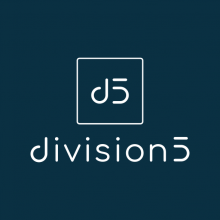
There are 7 Companies in Albania
that provide Progressive Web Apps Services!
Some of the advantages of Albania are the skilled and low-cost workers with high English skills and ICT related education, a good infrastructure, and low taxes for corporations. The sector has constant growth and it supplies other countries with well-educated IT professionals.
Discover Top IT Companies in Albania specialized in Progressive Web Apps and other related services. Find the best IT service providers for your projects.
A Progressive Web App (PWA) is an application made using the same technologies used for web platform development. It brings to users the experience of a traditional app while being accessible through a browser. Also, it can be used on different systems, like desktop and mobile services. The technologies used to develop these apps are JavaScript, HTML, and CSS. It can be used by anyone, anywhere, with only one codebase because it is a web app. Browsers like Microsoft Edge, Google Chrome, and Apple Safari support PWA characteristics. The goal of a Progressive Web App is to ease the process of developing cross-platform apps compared to native apps.
Handpicked companies • No obligation to hire • 100% risk-free
Featured Companies in Albania
This month, the following Progressive Web Apps companies managed to provide an outstanding service and support. It's worth taking a look.
Spontan is an award-winning agency that helps organizations and businesses to get and stay ahead of the competition.
We are a software dev. staff augmentation agency working with companies to build web, mobile, and connected devices that solve real business problems.
Explore Top Progressive Web Apps Companies in Albania
Web development and marketing from start to finish
Swiss Digital is an agile web development powerhouse that delivers high-performance, scalable digital solutions.
Custom software development
Filter Progressive Web Apps Companies in Albania by Cities
Find the right tech company near you or from a specific city. Some of the best companies might be located in smaller cities.
Find more Progressive Web Apps companies around the world
TechBehemoths is the world's most advanced and user-friendly platform to match IT Companies with real clients without hustle.
The Albanian ICT Industry: Data & Insights
IT is the fastest-growing sector of the republic’s economy. Hardware is the largest segment, with 55% percent, the ICT market in Albania is the second-largest segment with 30% and software represents 15% of the ICT market.
Some of the advantages of Albania are the skilled and low-cost workers with high English skills and ICT-related education, a good infrastructure, and low taxes for corporations. The sector has constant growth, and it supplies other countries with well-educated IT professionals.
Also, Albania’s outsourcing industry is expected to reach $57,42 million in 2025, and today there are over 40,000 professionals in the ICT and BPO sector. Information technology sourcing (ITO) will continue to offer the majority of the employment in the industry.
Why Should Somebody Work With Albanian Companies?
There are many reasons to work with Albanian companies, from the highly qualified professionals, the low salaries, with software engineers' median salary being $1,260 - $2,508 a month with 1 to 2 years of experience, the low taxes for companies, to the constant growth of the industry, and being near the European Union.
These are some of the advantages of working with Albanian companies: the low cost while still being a country near the EU, also the transit is easy with Albania because of the advantage of having a Schengen Visa and no need to have a national entry visa, which makes business easier.
There’s a good cost-safety relation with outsourcing IT projects to this country, which is why there are companies in over 37 countries, including Europe, North America, Asia, Australia, the Middle East, and the Scandinavian countries. There are also a good number of international companies, such as Switzerland, Sweden, France, the UK, and Malta that are developing IT products in Albania for other markets and providing cheaper costs to multinational IT companies.
What Somebody Should Be Aware of When Working With IT Companies From Albania.
The first thing you have to be aware of is that Albania is not in the European Union, so there may be different rules and laws, and of course, you are not under the protection of some EU Agreements or laws; this also applies to some international agreements. It is important to say that Albania is a generally speaking safe country, but there are a few things to take into account when working with IT companies. If you plan to have a meeting, there’s a high risk of natural disasters. Unfortunately, the country has some geographical features that make earthquakes, floods, torrents, and droughts something normal. In addition to this, some terrorist attacks have happened since the year 2000 (8). Organized criminal groups are active, particularly in the northern areas at the border with Kosovo, but shooting incidents can also happen in Skopje, which is the capital of the country. Also, gunfire can be heard as part of a celebration.
In other aspects, fake companies' scams can occur, but they are not too common. The safety is compromised in some parts of the region, but while working with this industry as outsourcing services, there are no more risks than in other countries in the region. It is important to find companies with proven experience. There are a lot of big companies that work as usual from other countries in the region without any noticeable incidents. Be sure that the company follows international best practices and everything is according to the law.
How Reliable Are IT Companies From Albania?
With the fast growth of the IT industry in the country, scams grow too, but generally speaking, Albanian companies are certainly reliable. Some laws can help with this, some of the industry-specific laws are the following:
- Agreement between Albania and the EU for the “Horizon 2020” program.
- Law of Copyrights.
- Methodology for Assessing the Value of Information Technology.
The ICT industry is really an important piece of the general economic situation of the country, even if it’s not its main driver. Also, Albania is ranked #41 on the Mobile SpeedTest Global Index 2025. And for desktop, mobile, and tablet median speed was 104.11Mbps download and 17.53Mbps upload speed.
How Does the IT Industry in Albania Relate to the Neighboring Regions/Countries?
In relation to this, we will analyze the IT industry in Albania, Kosovo, and other countries.
Albania has a very young working population, with 69% of the employees being between 25 and 29 years old. Their major market to export to is Italy, with 24% of IT services. Also, this country has the lowest corporate tax rate for those companies whose activity is software development, and the country has a very strong entrepreneurial potential, while the government continues to boost laws and strategies to help with this.
The ICT sector in Kosovo has a positive trade balance, where 78% of the companies export services, being 27% to Switzerland and 23% to Germany. Also, the government works with laws and opportunities to offer strong learning in IT and English skills.
Bulgaria is a very attractive country for IT and business production outsources, with its software development outsourcing sector rising significantly to $900 million and the expansion of the ICT industry by 300% valued at 2.5 billion euros. We can also see its good development, as in 2024 it was ranked 38th by the Global Innovation Index.
After bad performances from 2014 to 2016, Greece has stabilized the IT sector and, from 2017, started to show slow but steady growth. In 2025, the software market is expected to reach $446.9 million, with the dominant segment Enterprise Software with a market value of $189.02 million the same year, according to Statista. Their internet connection is up to standards, having a solid 4G network and ranked the 32nd globally with a download speed of equal to 123.93 Mbps and an upload 16.29 Mbps.
We also need to have a look at Romania’s industry to finish this section. This country has particularly well-qualified management and technical workers; the current trends in outsourcing in Eastern Europe have allowed Romanian IT service providers to establish themselves in a high position when compared with other European competitors. This country is the 6th in the world, regarding IT certified specialists per capita, ahead of Germany, the UK, and Canada, because of their multilingual and technical skills.
Albanian ICT in 2025
It's 2025 already, and Albania is still not an EU member state, which makes the country's ICT sector lose multiple opportunities for its tech industry. However, things don't look so bad after all - between 2021-2024, the EU is financing Albanian tech capabilities with more than 455 million euros. The funds will be used to power up the startup ecosystem and encourage tech entrepreneurship. So, with some funds and a lot of ambition, the Albanian tech industry has all the chances to shine on the European stage.
Conclusion
Albania is a good country in terms of IT industry development. You can find qualified professionals and companies with cheap prices for outsourcing services. The law and the taxes are also favorable, and there are a lot of companies from other countries that develop their companies and services in this country. It’s needed to be aware of some aspects that we already discussed in the relevant section, as it’s generally a safe country, there are some things you have to be aware of such as the possibility of natural disasters, scams or terrorist attacks, if you are trying to outsource your products or services to this country, the majority of these aspects will not affect you as you don’t have to be there, but be aware of the scams and always choose companies and professionals with proven experience to work with, and then you’ll be able to get all the benefits of outsourcing your services to this country and also helping them to boost their ICT industry.
What is Progressive Web Apps and what are its benefits for your projects?
A Progressive Web App (PWA) is an application made using the same technologies used for web platform development. It brings to users the experience of a traditional app while being accessible through a browser. Also, it can be used on different systems, like desktop and mobile services. The technologies used to develop these apps are JavaScript, HTML, and CSS. It can be used by anyone, anywhere, with only one codebase because it is a web app. Browsers like Microsoft Edge, Google Chrome, and Apple Safari support PWA characteristics. The goal of a Progressive Web App is to ease the process of developing cross-platform apps compared to native apps. It uses a development approach called the Progressive Enhancement Strategy. This method works by gradually enhancing the features of a web app with basic functions, based on the user’s device’s capabilities. Other developers use the App Shell Model, which makes PWAs work smoothly and faster even when offline.
The global market of Progressive Web Application is predicted to reach $10.44 billion by 2027, compared to $1.13 billion in 2019.
According to Forbes, PWAs have a lower bounce rate equal to 42.86% compared to native mobile websites. This results in better customer retention.
Businesses can benefit from implementing a Progressive Web Application, which is a valuable tool for businesses wanting to improve customer experience and be cost-effective. The range of advantages includes:
- Increased conversion rates
- Enhanced SEO performance
- Lower Bounce Rates
- Budget-friendly
- Offline access
- Cross-platform compatibility
PWAs are great for small businesses, e-commerce brands, travel firms, SaaS platforms, and many others. To choose the right platform offering Progressive Web Application services for your project, you should consider the business goals, technical needs, and the expectations of the user experience. Besides these, you should consider the following criteria:
- User-friendly and Smooth integration: Make sure the platform you want to choose delivers an easy integration to save your effort and time. And to find out if the PWA integrates with the existing technology stack, like CRM, and eCommerce.
- Customization possibilities: A PWA platform should give users access to develop the features tailored for their project’s needs. For this, platforms offer modern APIs, and flexible worker scripts. In addition, some platforms use third-party tools like CRM systems that allows you to not change the entire app.
- Sustained push notification, caching, and offline mode: Push notification boosts engagement for retail and media with updates that make users come back and drive revenue. Several PWA platforms offer smart caching and backing sync making sure that your app stays functional offline.
- Scalability and efficiency: As your project can grow to a global level, you should consider a solution that works smoothly across different network devices. To make this goal reachable, platforms offer server-side rendering, strong Content Delivery Networks (CDNs), and load balancing.
- Paid plans: Platforms offering PWA services can have different paid plans. Free plans can be efficient but lack some advanced features. Search for a plan that has the needed features for you.
- Strong support and resources: Robust support can save your team from many problems. Look for platforms that offer developer resources and active forums, not just simple emails.
- Security and performance: For the project’s safety requirements, PWA services platforms manage data security, follow the regulations like GDPR, and use it in your project security system. Support channels, 24/7 access, and managed services should be a priority.
TechBehemoths is a trusted platform created to help people find the right Progressive Web Application service provider for their projects and businesses. PWA platforms on the TechBehemoths are located across the world, in Africa, South and North America, Europe, and Asia, with over +100 companies. Detailed profiles are helping you choose a perfect service firm. Also, it gives you the possibility to select the filters you are looking for: location, service you look for, team size, hourly rate, and other preferences want can be found on TechBehemoths.






